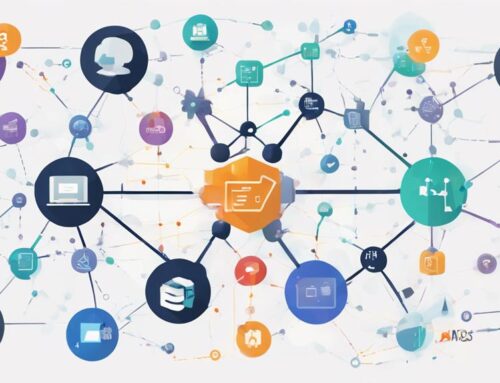To boost B2B CRM with data enrichment, think of it as adding the missing puzzle pieces to your customer relationship strategy. By harnessing the power of enriched data, you can unlock a treasure trove of insights that will revolutionize your CRM approach. From refining your targeting strategies to enhancing customer segmentation, the potential benefits are vast. Stay tuned to discover how this data-driven approach can propel your B2B interactions to new heights of effectiveness and profitability.
Identify CRM Needs
To effectively boost your B2B CRM with data enrichment, the initial step is to identify your CRM needs. This involves conducting thorough data analysis to gather valuable customer insights. By delving into your existing data, you can uncover patterns, preferences, and behaviors that will guide your CRM strategy.
Data analysis plays a crucial role in understanding your customers. It allows you to segment your customer base, personalize your interactions, and predict future trends. By analyzing data on customer interactions, purchases, and feedback, you can tailor your CRM approach to meet the specific needs of different customer segments.
Customer insights derived from data analysis can help you improve customer satisfaction, increase retention rates, and drive revenue growth. By identifying trends and patterns in customer behavior, you can anticipate their needs and deliver targeted marketing campaigns. Understanding your CRM needs through data analysis is the foundation for a successful data enrichment strategy.
Choose CRM System
When selecting a CRM system for your B2B needs, it’s crucial to consider its compatibility with data enrichment tools. Integrating data enrichment capabilities into your CRM system can significantly enhance the quality and depth of information available for your business operations. By choosing a CRM system that seamlessly incorporates data enrichment, you can optimize your B2B strategies and decision-making processes.
CRM System Selection
How can you ensure that the CRM system you choose aligns perfectly with your B2B needs and goals? When selecting CRM software, it’s crucial to evaluate the CRM features that are essential for your business. Begin by identifying your specific requirements such as lead management, contact tracking, sales forecasting, or customer service integration. Consider whether the CRM system offers customization options to tailor it to your unique processes. Look for features like automation tools, reporting capabilities, and integration with other business applications to streamline operations.
Additionally, assess the scalability of the CRM software to accommodate your company’s growth. Ensure that the system can handle increasing data volumes and user numbers without compromising performance. Evaluate the user interface for ease of use and training requirements, as user adoption is key to CRM success. Lastly, consider the vendor’s reputation, support services, and pricing model to make an informed decision that aligns with your B2B CRM objectives.
Data Enrichment Integration
For seamless integration of data enrichment into your chosen CRM system, focus on selecting a platform that offers robust compatibility with third-party data enrichment tools. This integration is crucial for achieving enhanced accuracy and gaining improved insights into your B2B customer data. To ensure a successful data enrichment integration, consider the following:
- API Support: Choose a CRM system that provides comprehensive API support to facilitate seamless communication between the CRM platform and data enrichment tools.
- Data Mapping Capabilities: Opt for a CRM system that allows for easy mapping of enriched data fields to existing CRM fields, ensuring that the enriched data is structured and utilized effectively within the system.
- Real-Time Enrichment: Look for a CRM system that supports real-time data enrichment capabilities, enabling you to access up-to-date information about your customers and prospects instantly.
- Customization Options: Select a CRM system that offers customization options for integrating and displaying enriched data, empowering you to tailor the data enrichment process to meet your specific business needs and objectives.
Integrate Data Enrichment Tools
To optimize the efficiency of your B2B CRM system, integrating data enrichment tools is essential. By incorporating these tools, you can automate processes, improve accuracy, enhance targeting, and optimize campaigns. Data enrichment tools help in automatically updating and enhancing your existing database with valuable information, ensuring that your CRM data remains up-to-date and reliable. This automation not only saves time but also reduces manual errors, leading to more accurate customer information.
Moreover, integrating data enrichment tools enables you to enhance targeting by providing detailed insights into your leads and customers. With enriched data, you can segment your audience more effectively based on specific criteria such as industry, company size, or buying behavior. This level of granularity allows you to personalize your outreach and tailor your marketing campaigns to resonate with different segments, ultimately improving engagement and conversion rates. In conclusion, integrating data enrichment tools is a strategic move that can significantly elevate the performance of your B2B CRM system.
Enrich CRM Data
Integrating data enrichment tools into your B2B CRM system sets the foundation for enriching your CRM data effectively. By enriching your CRM data, you can significantly improve efficiency and enhance accuracy. Here are four essential ways to enrich your CRM data:
- Update Customer Information: Regularly update and validate customer information to ensure your CRM data is current and accurate. This will help you avoid communication errors and maintain a high level of data quality.
- Enhance Lead Scoring: Utilize data enrichment to gather more insights about your leads, enabling you to refine your lead scoring models. This will help you prioritize leads more effectively and improve conversion rates.
- Personalize Customer Interactions: Enriched CRM data allows for a deeper understanding of customer preferences and behaviors. Use this information to personalize interactions, enhancing customer satisfaction and loyalty.
- Improve Segmentation: Enriched data enables more precise segmentation of your customer base. By segmenting customers based on enriched data, you can tailor your marketing campaigns more effectively, leading to better engagement and conversion rates.
Segment CRM Data
To optimize your B2B CRM strategy, segmenting your data is crucial. By targeting specific industries, you can tailor your messaging to address their unique pain points and needs effectively. Personalizing communication channels and implementing tailored marketing strategies based on segmented data can significantly enhance your engagement and conversion rates.
Target Specific Industries
Periodically reviewing and updating your CRM data can significantly enhance your B2B marketing strategies. When it comes to targeting specific industries, leveraging your CRM data effectively is crucial. By focusing on industry targeting and customer profiling, you can tailor your marketing efforts to resonate with specific sectors. Here are four key strategies to optimize your approach:
- Sector Segmentation: Analyze your CRM data to identify different sectors your clients belong to. This segmentation allows for targeted messaging and personalized content based on industry-specific needs.
- Market Analysis: Utilize your CRM data to conduct thorough market analysis within each industry. This data-driven approach helps in understanding market trends, competition, and opportunities for growth.
- Customized Campaigns: Develop customized marketing campaigns for each industry segment based on the insights derived from your CRM data. Personalizing your approach increases engagement and conversion rates.
- Industry-Specific Solutions: Tailor your products or services to cater to the unique requirements of different industries. By aligning your offerings with industry needs, you can position your business as a valuable partner within specific sectors.
Personalize Communication Channels
For enhanced B2B CRM effectiveness, optimizing your communication channels through segmented CRM data is paramount. Customer segmentation allows you to tailor your communication strategies based on specific characteristics and behaviors of different customer groups. By personalizing your communication channels, you can significantly improve engagement and conversion rates.
Segmenting your CRM data enables you to send targeted messages to different customer segments, increasing the relevance of your communication. This personalized approach leads to a more meaningful interaction with your B2B clients, as it demonstrates that you understand their unique needs and preferences.
Communication personalization also helps in building stronger relationships with your customers. By delivering relevant content through their preferred channels, you can create a more personalized experience that resonates with them. This tailored approach not only enhances customer satisfaction but also boosts brand loyalty and retention rates.
Implement Tailored Marketing Strategies
Enhancing your B2B CRM’s effectiveness involves implementing tailored marketing strategies by segmenting your CRM data. By dividing your customer data into specific groups based on demographics, behaviors, or preferences, you can create customized campaigns and tailored messaging that resonate more effectively with each segment. Here are four key strategies to consider:
- Behavior-Based Segmentation: Utilize data on how customers interact with your business to tailor marketing messages that align with their past behaviors and preferences.
- Demographic Targeting: Segment your CRM data based on demographic information such as age, location, or industry to deliver personalized content that caters to each group’s unique characteristics.
- Lifecycle Stage Segmentation: Tailor your marketing strategies based on where customers are in their journey with your company, ensuring that they receive relevant messaging at each stage.
- Personalized Recommendations: Leverage CRM data to provide personalized product recommendations or content suggestions, increasing engagement and driving conversions.
Personalize CRM Interactions
By leveraging data enrichment tools, you can personalize CRM interactions to enhance customer engagement and drive business growth. Customer profiling allows you to segment your clients based on various criteria such as industry, company size, or purchasing history. This segmentation enables you to tailor your interactions to meet the specific needs and preferences of each customer segment.
Behavioral analysis further enhances this personalization by providing insights into how customers interact with your business. By analyzing their behavior, such as website activity, email responses, or past purchases, you can anticipate their needs and preferences, allowing you to offer personalized recommendations or solutions.
Personalizing CRM interactions based on customer profiling and behavioral analysis fosters stronger relationships with clients, leading to increased loyalty and higher retention rates. It also helps in identifying upsell or cross-sell opportunities, ultimately driving revenue growth. Implementing personalized interactions through data enrichment tools is a strategic approach to maximizing the effectiveness of your CRM system in the B2B space.
Track CRM Performance
To effectively optimize your B2B CRM strategy, it is imperative to track CRM performance continuously. By measuring effectiveness and improving efficiency, you can ensure that your CRM system is delivering the desired outcomes. Here are four key steps to help you track CRM performance effectively:
- Establish Key Performance Indicators (KPIs): Define specific metrics such as conversion rates, customer retention rates, and lead response times to gauge the success of your CRM efforts.
- Regularly Analyze Data: Use CRM analytics tools to track and analyze data on customer interactions, sales performance, and marketing campaigns to identify trends and areas for improvement.
- Monitor User Adoption: Keep track of how effectively your team is using the CRM system and provide training or support where needed to maximize its potential.
- Seek Feedback: Gather input from users, stakeholders, and customers to understand their satisfaction levels and make necessary adjustments to enhance CRM performance.
Frequently Asked Questions
How Can Data Enrichment Improve B2B Lead Generation Efforts?
To enhance B2B lead generation efforts, data enrichment refines lead scoring accuracy. It streamlines sales automation processes, enabling targeted outreach and personalized engagement. By leveraging enriched data, you optimize conversions and tailor interactions for higher success rates.
What Are the Common Challenges Faced During CRM Data Enrichment?
Struggling with CRM data enrichment? Are data accuracy, integration challenges causing headaches? Time constraints and resource allocation add to the complexity. Prioritize a streamlined process, invest in tools, and train your team for success.
Is It Possible to Integrate Multiple Data Enrichment Tools Into One CRM System?
Yes, you can integrate multiple data enrichment tools into one CRM system. By carefully selecting compatible tools and focusing on data integration, you can enhance efficiency and streamline processes, ultimately improving the overall effectiveness of your CRM strategy.
How Can CRM Data Enrichment Help in Improving Customer Retention Rates?
To improve customer retention rates, CRM data enrichment enables precise customer segmentation. By leveraging enriched data, you can tailor personalized outreach strategies that resonate with each segment, enhancing engagement and loyalty for long-term customer relationships.
What Are the Best Practices for Maintaining Data Quality After Enrichment?
Maintaining data quality post-enrichment is pivotal for enhancing CRM efficacy. Prioritize data hygiene and accuracy. Implement continuous monitoring, frequent updates. Ensure your database remains pristine to derive maximum value and insights for sustained success.




